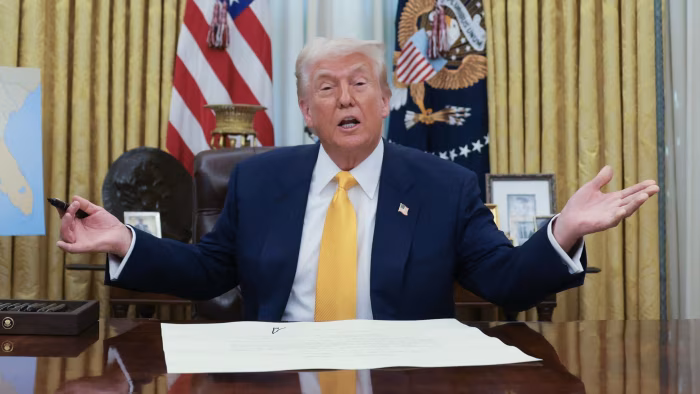The concept of American exceptionalism—the idea that the United States holds a unique and enduring advantage in global markets—has been under scrutiny for some time, the Financial Times reports.
While recent economic uncertainties and political turbulence, particularly under President Donald Trump’s administration, have accelerated concerns, the broader trend of shifting global economic power extends well beyond any single leader.
For years, US markets have benefited from strong economic growth, significant government spending, and an unprecedented boom in artificial intelligence investments. This combination fueled record-high stock valuations and a surge in foreign capital inflows. However, some experts argue that these factors have created an unsustainable financial environment, with growing government dependency and rising deficits signaling potential long-term instability.
Despite recent declines, the US dollar remains near historic highs, and the S&P 500, while down from its peak, still trades significantly above its long-term trend. Even as global markets like Europe and China have experienced rallies, US stocks remain highly valued—about 50% more than international markets, one of the largest valuation gaps on record. Meanwhile, America’s share of global financial benchmarks exceeds 60%, even though its portion of global GDP is under 30%.
The shift away from US markets has so far been led by hedge funds and other fast-moving investors. However, broader trends suggest that institutional and retail investors worldwide may also begin reallocating their portfolios. While American investors continue to buy stocks aggressively—often using leveraged financial products—foreign capital is increasingly seeking opportunities elsewhere.
Historically, US stock performance has influenced global markets, with international equities rising and falling alongside Wall Street. However, this correlation appears to be weakening. European markets recently recorded their strongest foreign investment inflows in a decade, while Japan and emerging markets have also attracted renewed interest.
One of the biggest concerns for the US economy is its growing international investment deficit. Foreign investors have significantly increased their holdings in American equities over the past decade, now owning 30% of the US stock market. At the same time, the country’s net investment deficit—measuring how much more foreigners own in US assets compared to what Americans hold abroad—has widened to 80% of GDP. Historically, such imbalances have been linked to periods of dollar weakness.
Adding to the uncertainty, recent policy shifts in other major economies are challenging US economic dominance. Germany’s fiscal reforms and China’s advancements in low-cost artificial intelligence models demonstrate that global competitors are closing the gap. Meanwhile, the US continues to run budget deficits of around 6% of GDP, a level many analysts consider unsustainable.
The decline of American exceptionalism does not mean an immediate collapse of US economic influence. However, the recent market corrections, combined with structural economic shifts, suggest a gradual rebalancing of global financial power. Investors are beginning to recognize that US markets may not always be the automatic leader in global returns.










The latest news in your social feeds
Subscribe to our social media platforms to stay tuned